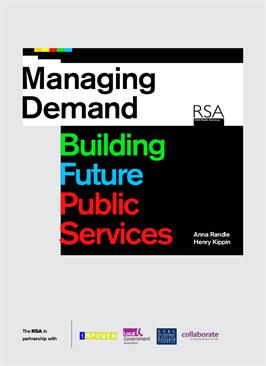Moves to encourage people to get involved in policing their local neighborhoods and taking a stand against crime could expose them or the people they ‘police’ to attack. There are clear risks in devolving local services to volunteers, including health and safety risks and risk of fraud.
While decision-makers in public services and voluntary groups take these risks very seriously, there has not been much systematic exploration of them or creative thinking about them among policy makers and service providers. Yet managing these risks and addressing perceptions of risk is important if Big Society policies are to succeed. This paper explores the nature of the risks, real and perceived, courted by Big Society-type reforms, and the potential of practical ‘bottom-up’ strategies to help in addressing them.
We need to combine top-down with bottom-up approaches, while also learning to recognise that risk itself is a fact of life. Ben Rogers suggests there are a number of promising avenues by which we could do more. These include doing more to skill-up the public to manage risk themselves; continuing to improve the way we plan and design our environments; and harnessing the power of the internet, which, as well as making it easier for us to connect with each other, also allows us to share knowledge about the trustworthiness of the people with whom we connect. Much has already been written about internet enabled ‘peer review’, but, the author argues that we need more thinking and experimenting about its application to managing risks in public services and voluntary organisations.
pdf 263.1 KB
Contributors

Related reports
-
Creative Gatherings Guide
Download our resource which outlines the key elements of Creative Gatherings and offers guidance on how to put one together; especially relevant to anyone with a professional or voluntary interest in civic action.
-
Managing Demand: Building Future Public Services
Rising demand, changing demographics and stretched finances mean that local authorities face a stark choice: change their ways or face the possibility of increasing irrelevance.
-
Investing in Shared Lives
Shared Lives is a little known, but important, alternative to home care and care homes for people in need of support.



